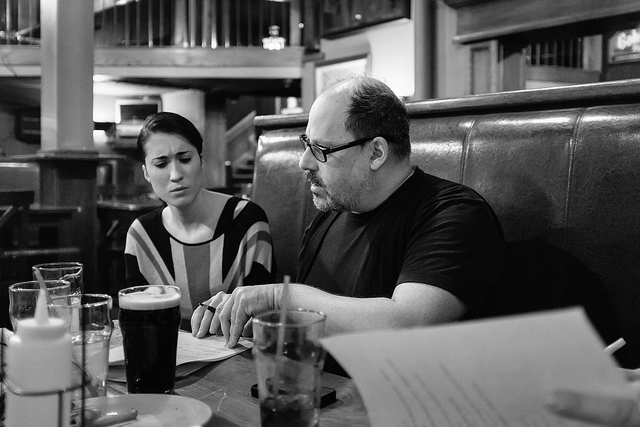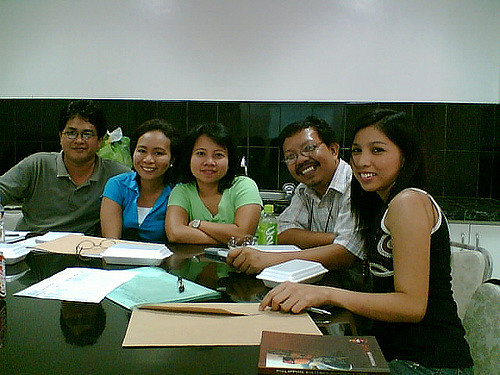What be the path now? Keep swinging for homeruns, hoping to get lucky with a feature written on spec? Because hey, even suckers eventually draw to that inside straight, long as they keep chasing it down. Or take a leaf from the electron’s notebook: hit it up with some “V” to the “IR,” and march down Easy Street, aka The Path of Least Resistance. You’ll hit different resistors, some in parallel, some in series, but at the end of the circuit at least you’ll find a paycheck and the stability of solid ground.
Option One is to stick to the Status Quo; there’s an appeal to keeping doing what’s doing. Stephen King said writing’s like sailing across the Atlantic in a bath tub, so why make waves? You’d be crazy to start drilling through porcelain unless you want to be a rub-a-glub-glub. Instead, keep on with the internships, hit up a few more companies, and earn experience points slow and steady – go for the level up by trolling though Mideel for Head Hunters, instead of setting off for Ruby Weapon. Give yourself cushion by waiting tables on the side, and most importantly, keep writing, keep producing art, keep pursuing what you came out to do. Some asshole’s going to hit the long shot – might as well be you.
Long Shots
2. Zoetrope
3. Slamdance
4. Austin Film Festival
6. Page
7. Scriptapalooza
Option Two is setting sights on the writer’s room. It’d require a shift in gears, coming at the craft at a slightly different angle. The medium and the approach would change: writing specs for existing shows, and sending them off to get into a writing program, but you’re still writing. You could continue applying for internships, but the spectrum would be narrowed a smidgen: taking shots at production company jobs only, to get yourself a shot at the Writer’s Room by default of proximity, while trolling for an op as a writer’s assistant. And ‘cause the effort don’t earn a paycheck, it’d still require waiting tables on the side.
Writing Programs
4. ABC Program
5. CBS Program
Finally, there’s the agent gig option. The Path of Lesser Resistance. Wouldn’t have to wait tables, for sure – not because you’d rake in the dough (no sir, not at ten dollars an hour) but because there’d be no time. Any writing completed would be done on the side, on weekends or during the day’s wee hours, and who knows if that’s enough time to produce anything of significance? Instead, time would be diverted towards building contacts and making connections, who you may or may not have anything to show, depending on if you’ve already done your work. If you haven’t, well, what separates you from the guy who only talks about his “great idea?”
Except – damn, there’s a huge draw to doing the agency route, because if you’re living in Los Angeles, you might as well live it. Be a part of the Hollywood machine. Attack that lifestyle. Get a taste for it, live that hustle, at least for a little while, because isn’t that part of the experience? Even if becoming Agent Extraordinaire isn’t the end game, is it so wrong to sample the wares?
No simple choices, but plenty of ways to go wrong. Lots of diversions and distractions out there, and the only thing keeping the straight is paradigm: knowing what you want, and knowing you’re in the long haul to get it. Without it, it’s aimless wandering. With paradigm in place, you’ll wander, but at least you’ll drift in the right direction.
Photo Credit: Lauren Cameron









